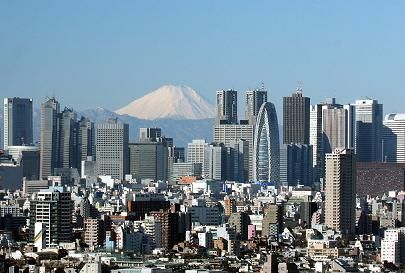Japan commits $385m to clean transport with 2020 Olympics in site
Japan will commit 45.2bn yen ($385m) towards fuel-cell vehicle subsidies and hydrogen stations for the 2020 Olympics as part of Prime Minister Shinzo Abe’s target to reduce the countries reliance on nuclear power

Japan will commit 45.2 billion yen ($385 million) towards fuel-cell vehicle (FCV) subsidies and hydrogen stations for the 2020 Olympics as part of Prime Minister Shinzo Abe’s target to reduce the countries reliance on nuclear power.
35 hydrogen fuel stations for FCVs will be constructed in Tokyo and negotiations are ongoing with Toyota Motor Corp and Honda Motor Co to put 6,000 hydrogen cars on the road by 2020, according to Makoto Fujimoto, who heads the planning team at the metropolitan government’s energy department.
The move is part of Japanese governments’ policy to promote hydrogen power after suffering its worst nuclear disaster since World War II in March 2011, when an earthquake and tsunami damaged the Fukushima Daiichi power plant.
The investment in hydrogen infrastructure comes as Tokyo faces pressure to limit spending as the city prepares to host the 2020 Olympics Games.
Hiroshi Takahashi, a research fellow at Fujitsu Research Institute, said: “The Olympics are a good opportunity to showcase new technologies. It’s also a significant chance to attract new investment and update the city’s transportation system to make it fuel-cell friendly.”
Abe test drove the Mirai fuel-cell model after Toyota delivered the vehicle to the Prime Minister’s official residence last week and Abe called for “all ministries and agencies to have” the Mirai.
Speaking to reporters on January 15, Abe added: “It’s time to introduce a hydrogen era.”
The national government is planning to have hydrogen distribution facilities installed as it supports Toyota to help popularise what the company views as the next generation of auto technology.
Abe has outlined his plans to create a “hydrogen society,” in Japan with cells powered by the element also powering homes and office buildings.
Japan’s fuel-cell subsidies are bigger than those in China, the US and Europe and are offering for electric-vehicle buyers.
They are also more than triple the 950,000 yen of incentives that Japan currently offers buyers of Mitsubishi Motors Corp.’s all-electric i-MiEV.
Japan is spending 10bn yen (£55.5m) per day on natural gas after the reactor meltdown forced the shutdown of all of its nuclear plants, Fujimoto said.
Under the Tokyo Metropolitan Government’s plan, the capital is targeting 100,000 hydrogen passenger vehicles, 100 hydrogen buses and 80 refuelling stations by 2025.
Fuel-cell vehicle buyers in Tokyo will be entitled to around 1 million yen of subsidies, on top of the 2 million yen provided by the central government, according to Fujimoto.
The Tokyo government will cover about 80 per cent of the costs of building hydrogen stations and will cap the costs for operators at 100 million yen, or about the same as building a gasoline station, Fujimoto added.
Akio Toyoda, the Toyota President, told reporters that the company is considering increasing production of the Mirai model after receiving about 1,500 in the first month, with the initial target being 400 by the end of 2015.
Fuel cell vehicles are considered as a sustainable and clean transport solution because they convert hydrogen to electricity, leaving water vapor as a by-product.


